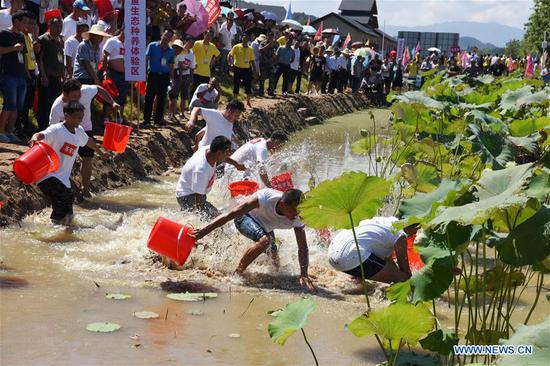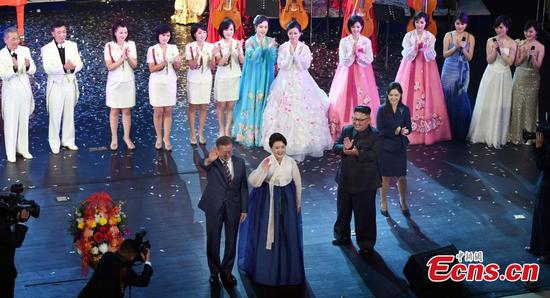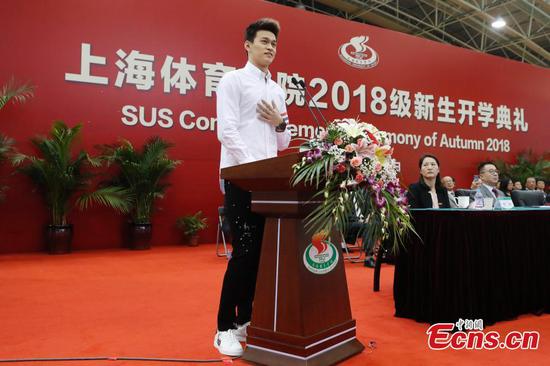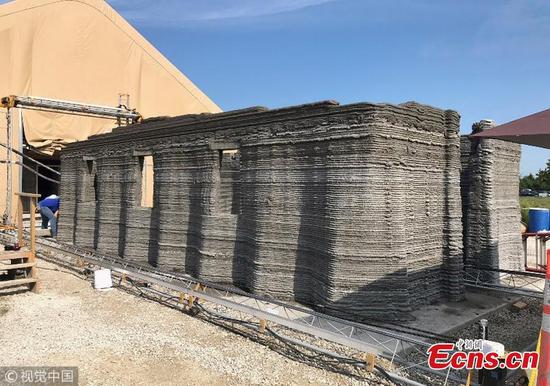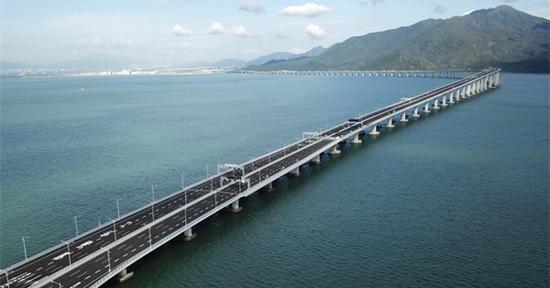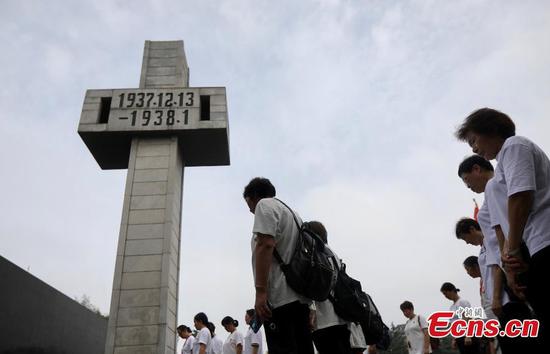Japanese Prime Minister Shinzo Abe won a third consecutive term as president of the ruling Liberal Democratic Party (LDP) on Thursday, which will give him the chance to become Japan's longest-serving prime minister and to pursue his goal of revising the pacifist Constitution.
In the two-horse election against former Defense Minister Shigeru Ishiba, Abe secured 553 out of a total of 807 valid votes cast by LDP Diet members and proportioned out to some 1 million rank-and-file party members across the country, while Ishiba got 254 votes.
Specifically, Abe won 329 out of ballots cast by Diet members and 224 by rank-and-file party members, while Ishiba got 73 from legislators and a better-than-expected 181 from rank-and-file members, whose votes are believed to better reflect public opinion.
"The presidential election demonstrated that the LDP is not of one color," said Ishiba after the election.
Abe, who turns 64 on Friday, stepped down as LDP chief and prime minister in 2007 citing health reasons.
He retook office as prime minister in 2012 after the LDP ousted from power the now-defunct Democratic Party of Japan, and was re-elected unopposed in 2015 for second consecutive three-year term.
In Japan, the leader of the party or party coalition that takes over half of the seats in the lower house would assume the position of prime minister and there is no limit to the prime minister's term.
Abe's third consecutive term as LDP president will expire in September 2021, and as the LDP and its coalition partner Komeito dominate both chambers of the national parliament, it means that Abe also won the chance to serve as prime minister for the next three years.
The victory on Thursday will also give Abe the opportunity to push for his plan of revising Japan's pacifist Constitution for the first time since it took effect in 1947.
Abe has proposed last year to make explicit reference to the Japanese Self Defense Forces in the war-renouncing Article 9 of the Constitution, to put an end to arguments the Japanese troops are "unconstitutional."
"It's now time to tackle a revision to the Constitution," Abe said Thursday after winning the election.
Abe has urged the ruling party to submit a bill to amend the Constitution in the extraordinary Diet session this autumn.
Experts here, however, believe that Abe's constitutional revision attempts would still face many difficulties.
"With local elections, emperor's abdication and upper house election coming next year, it would be very difficult for the prime minister to force through the constitutional revision bill amid political chaos and public objection," Ukeru Magosaki, a former Japanese Foreign Ministry official.
Yu Uchiyama, professor of the University of Tokyo, said that Abe might have to step down if the constitutional revision bill is voted down by a national referendum after being forced through the parliament.
A recent Kyodo survey showed that 49.0 percent of the respondents were against Abe's intention to submit a constitutional revision bill in the autumn, while 36.7 percent said they were supportive.
Abe is set to reshuffle his Cabinet and the party's leadership lineup in October, local media reported, quoting government sources.











